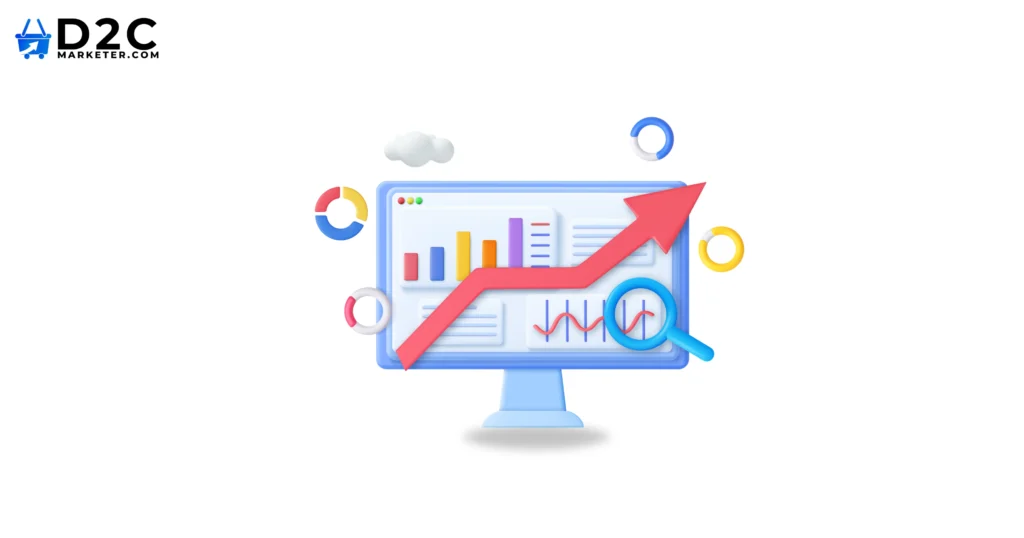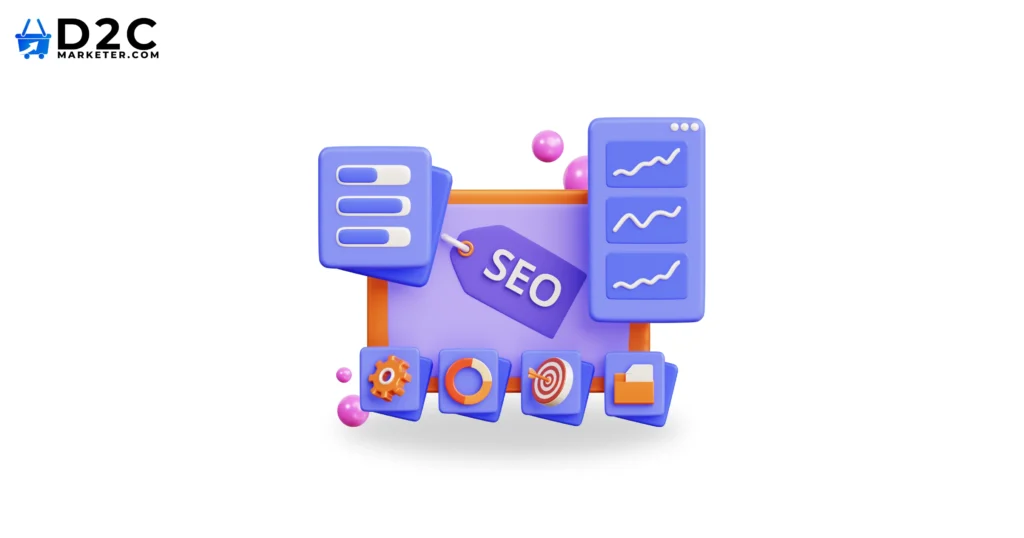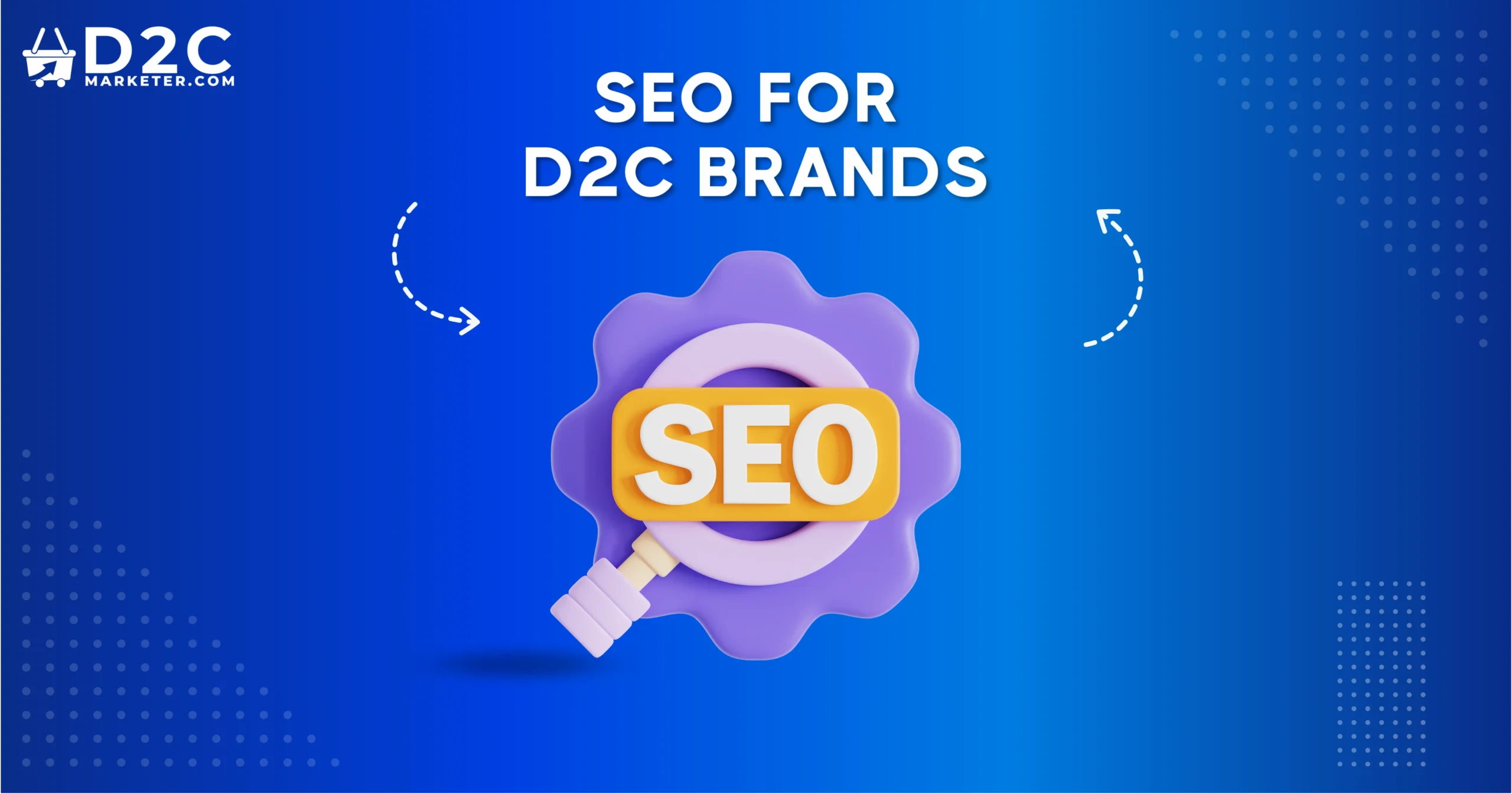SEO for D2C Brands: Best Practices and Strategies for 2025
In a world where online shopping is the norm, Direct-to-Consumer (D2C) brands are carving out their space, but standing out isn’t easy. With so many options at consumer’s fingertips, effective search engine optimization (SEO) is a game-changer. It’s not just about getting clicks, it’s about connecting with the right audience who truly values what you offer.
Imagine a potential customer searching for unique products that resonate with them, this is where SEO for D2C brands comes into play. By optimizing your online presence, you can ensure your brand is discovered by those who are actively looking for solutions you provide. The right D2C SEO services can help you boost visibility and create a loyal customer base, turning casual visitors into brand advocates.
In this guide, we’ll explore key strategies in on-page SEO, off-page SEO, and technical SEO, all tailored to the unique needs of D2C brands. By understanding these essentials and keeping up with D2C SEO trends, you can position your brand for lasting success.
Let’s dive into the strategies that will help your D2C brand shine in an increasingly crowded online marketplace!
Table of Contents
On-Page SEO Best Practices

On-page SEO is crucial for D2C brands looking to enhance their online presence and connect with customers. The first step is effective keyword research. Understand what potential customers are searching for by identifying relevant keywords like “D2C SEO” and “D2C SEO services.” Use tools like Google Keyword Planner to find terms that resonate with your audience.
Focus on intent-driven optimization. Consumers have specific needs, some are looking for information, while others are ready to buy. Tailor your content to match their intent, ensuring that your product pages not only showcase your offerings but also guide users toward making a purchase. For instance, if someone searches for “best eco-friendly sneakers,” make sure your page answers their questions and encourages action.
Crafting compelling product pages is essential. Write engaging product descriptions that highlight features and benefits, while also telling a story about your brand. Use high-quality images and videos to create an immersive experience. This approach not only improves conversion rates but also aligns with current D2C SEO trends.
Don’t overlook the importance of internal linking. By connecting related products and content on your site, you enhance user experience and help search engines understand your site’s structure. This can lead to better SEO performance.
Finally, focus on meta tags. Create unique title tags and meta descriptions for each page, incorporating relevant keywords. These snippets are often the first thing potential customers see in search results, so make them compelling to increase your click-through rates.
Off-Page SEO Tactics

When it comes to building your brand’s presence online, off-page SEO is where the magic happens. For D2C brands, it’s not just about what’s on your website, it’s about creating a buzz in the broader digital landscape.
Building High-Quality Backlinks
One of the best ways to boost your visibility is by securing high-quality backlinks. Think of these links as endorsements from other credible websites. When they point to your site, search engines take notice. Focus on connecting with influencers, bloggers, and industry leaders who resonate with your brand. This is where D2C SEO services can really shine, they have the expertise to help you build these valuable relationships.
Leveraging Partnerships
Don’t underestimate the power of collaboration. Teaming up with like-minded brands can amplify your reach. Consider joining forces with complementary businesses for promotions or events. This not only brings fresh content but also creates opportunities for backlinks, helping both brands grow their audiences.
Guest Posting
Another effective strategy is guest posting. Writing articles for reputable sites in your niche not only showcases your expertise but also helps you earn those coveted backlinks. Make sure to include keywords like “SEO for D2C brands” in your posts to attract the right readers. Plus, it’s a great way to engage with a new audience.
Importance of Online Reviews
Online reviews are more important than ever. They can make or break a potential customer’s decision. Encourage your happy customers to leave positive reviews on platforms like Google. These testimonials not only build trust but also contribute to your off-page SEO efforts.
User-Generated Content (UGC)
Embrace user-generated content by inviting your customers to share their experiences with your products on social media. This fosters a sense of community and provides fresh, authentic content that search engines love. UGC not only enhances your brand’s credibility but also creates a buzz around your products.
Technical SEO for D2C Sites

When it comes to optimizing your D2C brand’s online presence, technical SEO is the backbone that supports all your efforts. It might not be as flashy as on-page content or off-page strategies, but it’s absolutely essential for ensuring that your site runs smoothly and ranks well.
Optimizing for Site Speed
In today’s fast-paced world, every second counts. If your website takes too long to load, you risk losing potential customers. Aim for a site speed of under three seconds for optimal user experience. Use tools like Google PageSpeed Insights to identify areas for improvement, such as compressing images or minimizing JavaScript. A faster site not only improves user satisfaction but also positively impacts your SEO for D2C brands.
Mobile-First Indexing
With more shoppers using mobile devices than ever, Google has shifted to mobile-first indexing. This means your site’s mobile version is what search engines prioritize for rankings. Ensure your site is fully responsive and provides a seamless experience across all devices. Check that navigation is user-friendly and that your content is easily accessible on smaller screens. If you’re not mobile-friendly, you could be missing out on a significant chunk of your audience.
Structured Data
Incorporating structured data (schema markup) is a smart move for D2C brands. This code helps search engines understand the context of your content, enabling rich snippets in search results. These snippets can increase your visibility and click-through rates. For example, if you sell products, implementing product schema can showcase price, availability, and reviews directly in the search results.
Ensuring an Efficient, Crawlable Site Structure
A well-organized site structure is crucial for both users and search engines. Make sure your navigation is intuitive and your pages are logically grouped. This not only helps visitors find what they need but also allows search engine crawlers to navigate your site easily. Use a clear hierarchy with categories and subcategories, and don’t forget to include an XML sitemap. This helps search engines index your pages more effectively.
By prioritizing these technical SEO aspects, you’ll create a solid foundation for your D2C site. Staying on top of these strategies will not only improve your site’s performance but also align with current D2C SEO trends, ensuring your brand stands out in the digital landscape. Investing in D2C SEO services can further enhance these efforts, helping you achieve long-term success.
SEO Tools and Platforms

Navigating the SEO landscape can be daunting for D2C brands, but the right tools can make all the difference. Think of these tools as your trusty sidekicks in the quest for online visibility. Let’s explore some essential SEO platforms that can help you monitor your performance and enhance your strategies.
Ahrefs
First up is Ahrefs, a favorite among SEO enthusiasts. With its intuitive interface, Ahrefs allows you to dive deep into your website’s backlinks, keyword rankings, and overall health. Imagine being able to see exactly which keywords are driving traffic to your site! For D2C brands, this is invaluable when analyzing competitors and spotting opportunities for growth. Additionally, Ahrefs helps you stay updated with the latest D2C SEO trends, making it easier to refine your approach and connect with your audience.
SEMrush
SEMrush, another powerhouse in the SEO toolkit. This all-in-one platform is perfect for those looking to cover all bases. From keyword research to site audits, SEMrush offers a wealth of features to optimize your site. One standout aspect is its competitive analysis, which lets you see how your D2C brand measures up against others in your niche. By tracking your rankings and monitoring your performance, you can make informed decisions about your D2C SEO services and strategies.
Google Search Console
Google Search Console this free tool is like having a direct line to Google. It provides vital insights into how your site is performing in search results, including indexing status and keyword performance. For D2C brands, it’s essential to identify crawl errors and understand how users find your site. By using Google Search Console, you can ensure that your content is effectively reaching your target audience.
By leveraging these powerful SEO tools, you can gain invaluable insights and make data-driven decisions to enhance your D2C brand’s online presence. Whether you’re just starting out or looking to optimize your existing strategies, these platforms will help you connect more effectively with your customers and watch your brand flourish in the digital landscape.
Case Study

In the ever-evolving world of eCommerce, standing out can be a daunting challenge for D2C brands. This was the case for one client, a mid-sized fashion brand looking to enhance its online visibility and drive organic traffic. With a competitive landscape and limited SEO knowledge, they turned to D2C Marketer for help.
The Challenge
The brand was struggling to gain traction in search results, relying heavily on paid ads for visibility. While their products were unique and well-received by customers, their website wasn’t optimized for search engines. As a result, they were missing out on significant traffic and potential sales.
The Strategy
D2C Marketer implemented a comprehensive D2C SEO strategy that focused on three main areas: on-page SEO, off-page SEO, and technical SEO.
- On-Page SEO: We started with in-depth keyword research to identify high-value keywords relevant to the brand’s niche. By optimizing product descriptions, blog content, and meta tags, we ensured that the brand’s site was aligned with what potential customers were searching for. We also revamped their product pages to create compelling, keyword-rich content that not only informed but also engaged visitors.
- Off-Page SEO: Next, we focused on building high-quality backlinks through strategic partnerships and guest posting on relevant industry blogs. This not only improved the brand’s authority but also directed referral traffic to their site. We also encouraged user-generated content, leveraging customer reviews and social media engagement to boost credibility.
- Technical SEO: Lastly, we conducted a thorough audit of the website’s technical aspects. By optimizing site speed, ensuring mobile-friendliness, and implementing structured data, we improved the overall user experience. This made it easier for search engines to crawl and index the site effectively.
The Results
The results were impressive. Within just six months, the D2C brand experienced a remarkable 200% increase in organic traffic. This surge not only boosted visibility but also led to a significant uptick in sales. The brand’s rankings for key target keywords improved dramatically, positioning them as a go-to option in their niche.
Conclusion
In the fast-paced world of eCommerce, standing out as a D2C brand requires more than just great products, it demands a robust online presence driven by effective SEO strategies. This guide has explored essential practices in on-page, off-page, and technical SEO tailored specifically for D2C brands. By implementing these strategies, you can significantly enhance your visibility, connect with the right audience, and foster a loyal customer base.
The success story of how D2C Marketer helped a brand achieve a remarkable 200% increase in organic traffic serves as a testament to the power of a well-rounded D2C SEO strategy. By focusing on keyword optimization, building high-quality backlinks, and ensuring a seamless user experience, we were able to drive substantial results in just six months. This reinforces the importance of staying updated with D2C SEO trends and investing in expert D2C SEO services.
Ready to dominate search results? Contact D2C Marketer for customized SEO strategies that deliver results.
Let’s work together to elevate your D2C brand and turn visitors into devoted customers. Your journey to enhanced visibility and sustainable growth starts here!
FAQ
D2C brands need SEO to rank higher in search results for relevant keywords. This drives organic traffic, brand awareness, and ultimately sales without relying solely on paid ads.
SEO is a long game. You might see initial improvements in 3-6 months, but significant results can take 6 months to a year or more. Patience is key.
On-page SEO optimizes your website itself (content, keywords, structure). Off-page SEO focuses on building authority through backlinks from other websites.
Technical SEO ensures your site is crawlable and mobile-friendly, impacting search engine ranking and user experience.
Mobile-first indexing means Google prioritizes mobile versions of websites. D2C brands need a mobile-friendly site for good SEO and user experience.

